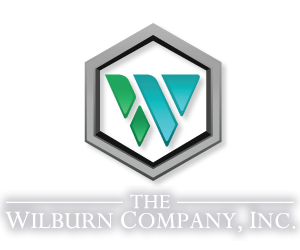
“I remember the first time I did a building inspection with one of our project managers and a client,” recalls Chad Conrad, Director of Performance Management at The Wilburn Company.
“We went over things and I called out what needed to be cleaned more thoroughly. The project manager was a little surprised – like, ‘Why are you calling out all of these improvement areas so bluntly in front of our client?’”
“But the reality is that the client is going to see what needs to be improved. We want to see it clearly, too, so that we can take care of it.”
That’s what performance management is all about. It’s an exercise in communication that builds trust and leads to continual improvement.
Here’s how we approach it – and why it’s so important.
What is performance management?
“Performance management,” explains UC Berkeley, “is an ongoing process of communication between a supervisor and an employee that occurs throughout the year.”
That’s part of the story.
At The Wilburn Company, our performance management team does function in a supervisory role. But our team is focused primarily on reviewing and improving cleaning results, rather than simply on providing feedback to individual employees.
Performance management, for us, is not just an HR tool; it’s more closely tied with quality control.
It can be categorized into the following areas:
- Inspections. These help us to increase visibility on our cleaning sites. Our inspections can range from bi-monthly to inspections of individual janitorial room locations for GS-42 compliance (ensuring we have proper safety equipment, safety guidelines, cleaning floor layouts, and SDS Binders).
- Training. Based on the results of inspections and on-site visits, performance management will include training and development to improve performance outcomes.
- Barcode work management system. Performance management includes a barcode scanning system. Employees simply scan the code to see cleaning checklists and any additional details given by the site’s project manager.
- Site visits. These visits include client interaction, setting up meetings, and walking with the clients within building portfolios.
Taken altogether, performance management allows our cleaning services to continually improve.
How our performance management process leads to better results
To illustrate the effect of performance management on our cleaning, it’ll be helpful to walk through the typical inspection process.
1. We perform bi-monthly inspections.
First of all, inspections are performed regularly – twice a month at the vast majority of the buildings we serve – by our specially trained inspectors.
Importantly, performance management is not done by people on the building cleaning team. It’s done by a separate department. This leads to more objectivity.
“During my inspection process, I not only want to point out the challenged areas, but I also highlight the good stuff,” explains Conrad. “This helps motivate and support our team during their cleaning process.”
Inspectors use a checklist to review each area of a building, rating it on a scale from one to five; a one means the area looks as if it hasn’t been cleaned at all, while five means the area is in excellent condition. A four is in line with the industry average – but because we strive to lead the industry, we tag fours for future improvement.
We measure our cleaning against key performance indicators (KPIs) – a set of measurable details used to gauge a building’s cleanliness that carry across any building in our portfolio.
For example, restroom cleanliness KPIs include high vent dusting, urinal and toilet cleanliness, floor maintenance, countertop cleanliness (i.e., sinks, faucets, and glass mirrors) and the stocking of paper products and soaps.
Our teams use the Cleantelligent app to track inspections and make notes. (In secure facilities, inspections are tracked on paper, and results are manually entered into the app later.) We then use this data to educate our team, showcase cleaning challenges, and build relationships among our team and our clients.
2. Inspections lead to actions.
When an inspector tags an area with a score below a perfect five, their app will immediately queue them to add pictures and notes so that the building cleaning team gets the feedback. Inspectors can also add notes of encouragement if an area looks particularly clean or well cared for.
Any area tagged at a three or below will automatically generate a work order that will be sent to the project management team and fulfilled quickly.
The end result is that issues are never left to linger; they’re always caught promptly, and resolutions promptly follow.
3. Data leads to improvement.
One of the coolest things about our performance management process is the way the data we generate leads to insights over time.
Because inspectors tag every issue in the app, buildings accumulate a wealth of data.
For example, if the trash cans on the ground floor have been tagged as a trouble area for three out of four months, you can infer that something needs to change. Or, if an area received a low score during one inspection but has received sterling marks otherwise, you know that the poor score was an outlier.
We’re intentional in sharing performance management data with clients. First, clients can log onto the system to see data at any time on their own. Second, we schedule regular meetings with our clients to review performance management reports.
At the end of each month, we’ll review all of the workorders that have been placed – both by clients and by our performance management team – and talk about what happened. If anything needs to be changed with our level of service, we’ll change it.
Again, that’s what performance management is all about: proactive communication and continual improvement.
Want to learn more about the role of performance management in cleaning?
At The Wilburn Company, we’re excited to see how performance management is improving our cleaning services and helping us to build trust with our clients.
If you’d like to learn more about our approach (or if you want to work with a cleaning company that prioritizes continual improvement) we’d love to hear from you.
When you work with us, we’ll be thorough and honest in our assessment of our service – and we’ll always work to make it better.
